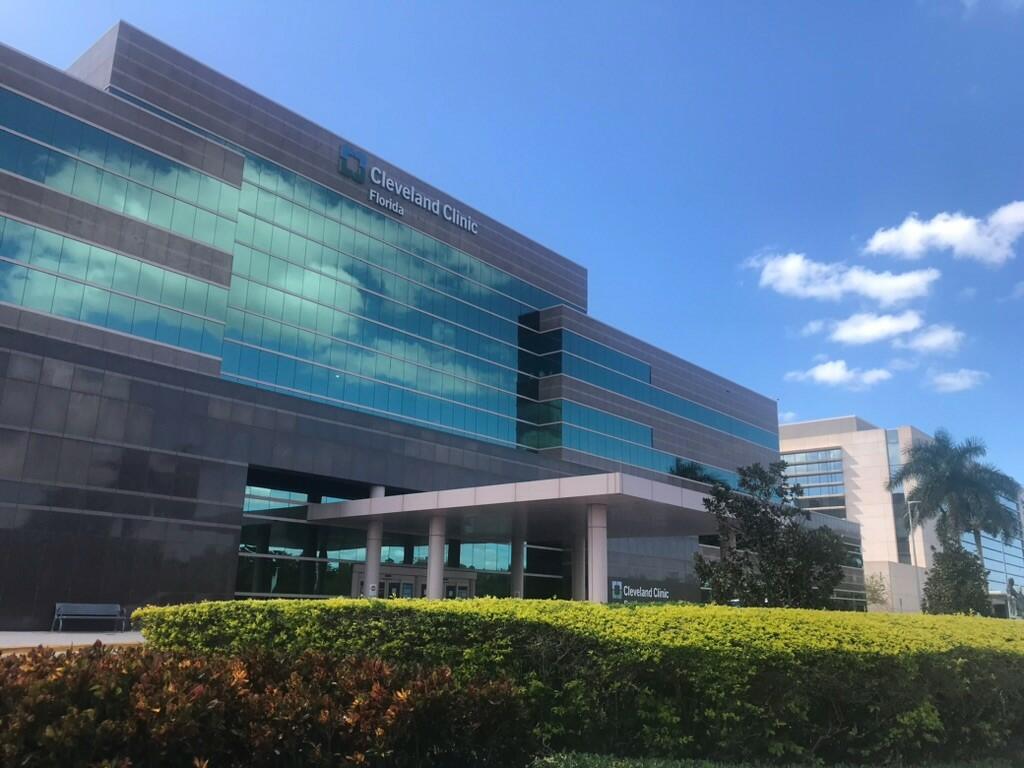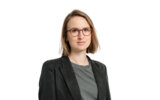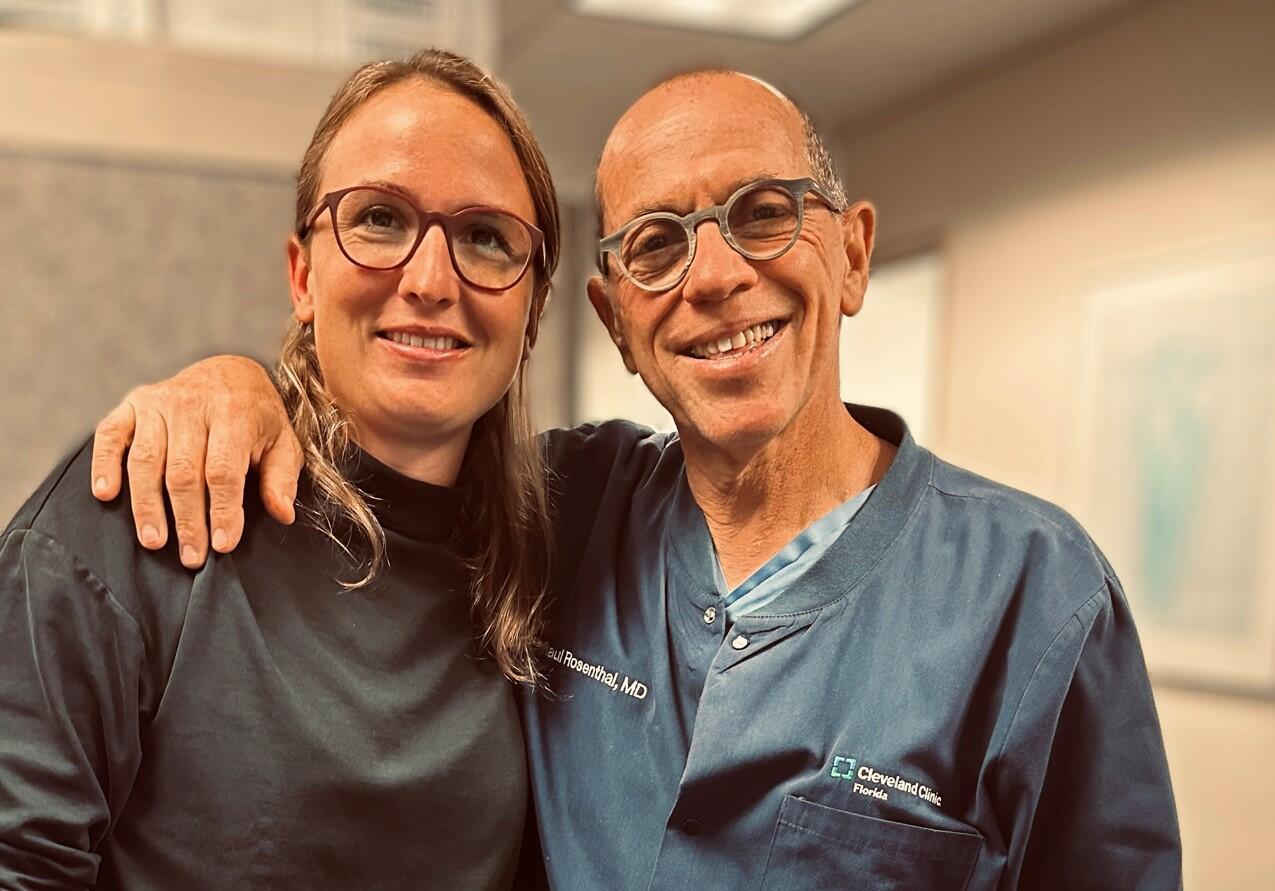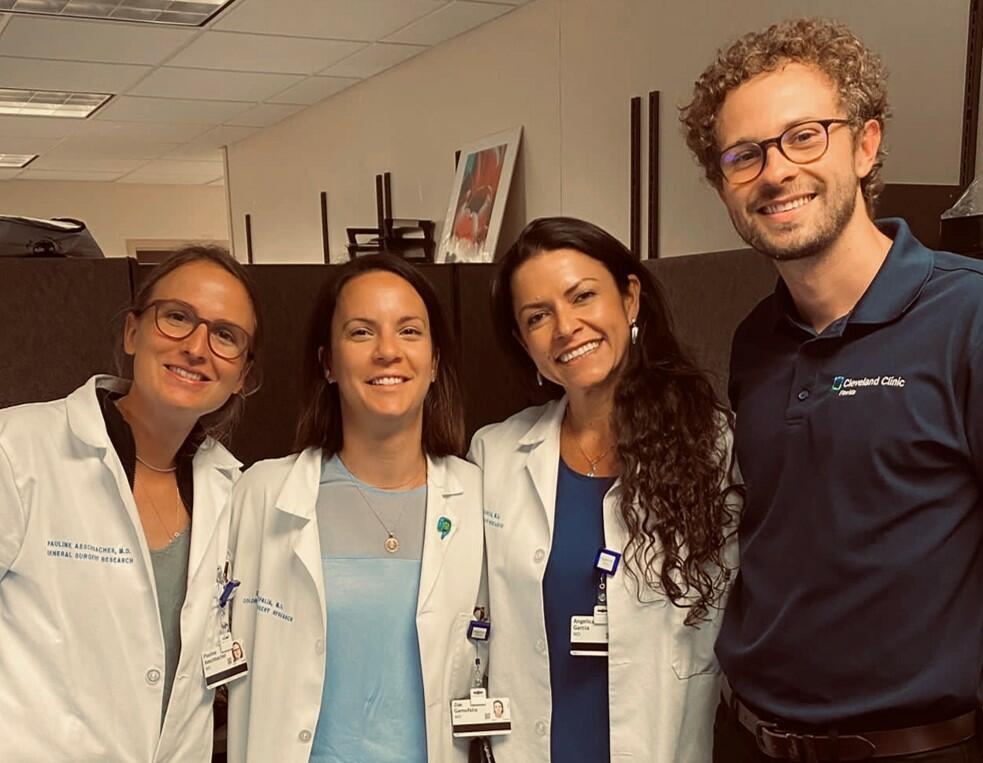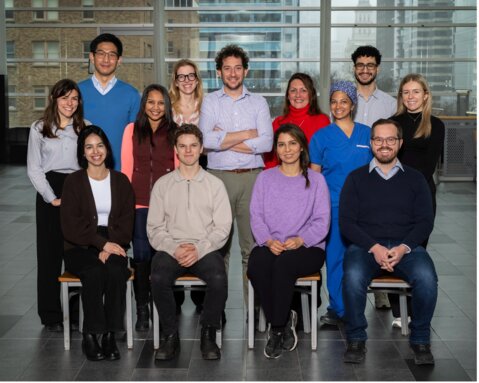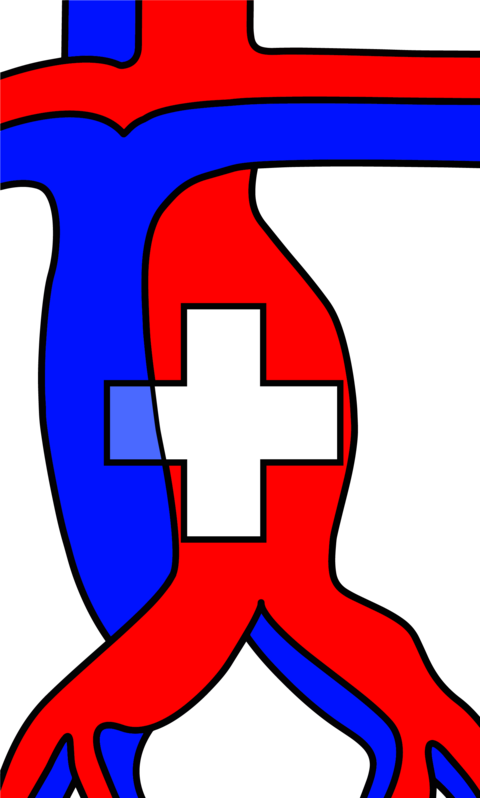How It Started
I previously started my surgical training at the HFR Fribourg - cantonal hospital and completed my residency at the Inselspital in Bern. As my main focus of interest is foregut and bariatric surgery, I worked for almost two years as a resident in the foregut and bariatric team with PD Dr. med. Philipp Nett and Dr. med. Yves Borbély and engaged in clinical work and research projects within this field. In my quest to expand my research experience and horizon as a young surgeon, we discussed the possibility to plan a clinical research fellowship abroad in foregut and bariatric surgery. They kindly provided contacts and recommendations of leaders in the field.
Legend: Dr. Raul Rosenthal, my mentor during my research fellowship at Cleveland Clinic Florida
As my top choice, I selected Dr. Raul Rosenthal, a pioneer and leader in laparoscopic bariatric and foregut surgery. Dr. Rosenthal serves as the director of the Bariatric and Metabolic Institute and co-director of the Advanced Gastrointestinal Surgical Fellowship at Cleveland Clinic Florida. Widely recognized in the bariatric and general surgery community, he is esteemed for his exceptional leadership and mentorship, as well as his extensive experience in minimally invasive surgery. His areas of expertise include, among other, the impact of obesity and bariatric surgery on cancer risk, fluorescence-guided surgery, and the pathophysiology of pneumoperitoneum. Additionally, he holds notable positions such as editor in chief of the Surgery for Obesity and Related Diseases journal and has served as the president of the Society of American Gastrointestinal and Endoscopic Surgeons (SAGES) and the American Society for Metabolic & Bariatric Surgery (ASMBS).
I nervously submitted my application in December 2022. I received a positive response shortly after. Although the process to the final approval required time and perseverance, I considered myself very fortunate to obtain this fellowship after my first application. I am grateful for the support received from Dr. med. Philipp Nett, Dr. med. Yves Borbély, Prof. Guido Beldi and Prof. Daniel Candinas, Inselspital Bern and from Dr. Raul Rosenthal and Dr. Steven Wexner, Cleveland Clinic Florida.
After overcoming paperwork hurdles, I obtained my visa in October 2022. A few weeks later, accompanied by my husband, I embarked on this new adventure in Miami. In just two weeks, we settled into an apartment, acquired a car, and obtained my social security number, ready to start work in November 2022.
Administrative Aspects
My bachelor and master in human medicine were recognized without issues by the ECFMG (Educational Commission for Foreign Medical Graduates). As a research fellow, I was exempt from the three USMLE exams (United States Medical Licensing Examination) required for clinical activity as a physician in the U.S. However, I was required to pass the TOEFL (Test of English as a Foreign Language) exam to assess my English proficiency, a standard procedure for fellowships in English-speaking countries.
Due to new regulations, proof of financial support is often requested for such fellowship but varies considerably between institutions and even departments. Obtaining a grant to finance my position was therefore essential. I would like to express my gratitude to the Scherbarth Foundation and the Cleveland Clinic Florida Research and Education Funds for their financial support.
My stay in the U.S. was possible under a J1 visa, allowing me to work at Cleveland Clinic Florida for 12 months before returning home within one month after the end of my contract. Securing this type of visa involved close collaboration with my future employer, Cleveland Clinic Florida, as they had to provide documentation (Student & Exchange Visitor Information System (SEVIS) ID and the Certificate of Eligibility for Exchange Visitor Status (J-Nonimmigrant known as the Form DS-2019) of my engagement prior to the visa application and approval process. Additionally, I needed a license to work as a research fellow from the state of Florida, which entailed undergoing a thorough background check and an interesting visit at the police station to record my fingerprints.
Upon starting my fellowship, I dedicated the first days completing various e-learning compliance courses, essential for conducting clinical research and familiarizing myself with research regulations and HIPAA (Health Insurance Portability and Accountability Act) compliance. These courses were similar to the Clinical Investigator course (GCP & clinical research training) required in Switzerland for clinical research, tailored to the regulations of the country, state, and hospital. After completing these requirements, I was equipped to be included in research projects and access patient data, clinical database, and interact with patients for research purposes.
Cleveland Clinic Florida
Cleveland Clinic Florida, located in Weston, approximately 27 miles northwest of Miami, is a nonprofit, academic medical center with more than 365 physicians and 55 specialties. It takes pride in being the highest-ranked hospital in South Florida and 45th best in the U.S. Established in 1988, Cleveland Clinic Florida originated as a satellite facility of the prestigious Cleveland Clinic in Ohio. Over the years, it has experienced substantial growth, expanding its services and facilities while delivering cutting-edge technology and high-quality care.
The Research Team
Despite the disruption caused by the COVID-19 pandemic, research activities were gradually picking up upon my arrival. The environment was ideal for clinical research, with excellent supervision and support from Dr. Raul Rosenthal, Dr. Emanuele Lo Menzo and their research team. They told me about current and future projects in which I could participate or even lead, and I also had the opportunity to discuss new research directions with them. As we had access to databases such as the Inpatient National Sample (NIS) and the Metabolic and Bariatric Surgery Accreditation and Quality Improvement Program (MBSAQIP), retrospective research projects were not limited to the clinical database of the Cleveland Clinic. We also had support from biostatisticians, surgeons and fellows with strong statistical skills and research experience, from which I greatly benefited. I had the opportunity to work closely with the colorectal research team led by Dr. Steven Wexner, which fostered productive relationships and mutual learning experiences. Collaborating with researchers and clinicians from diverse backgrounds enriched our projects, and our interactions extended beyond working hours, strengthening friendships. As we worked in the clinic building, regular interactions with clinical staff facilitated the inclusion of patients in research projects, and observation of surgical operations provided valuable information.
Legend: Colleagues at Cleveland Clinic Florida from the foregut and colorectal research team.
I am grateful for the contributions of my colleagues and for the support received from my mentors. During this year, I contributed to many research projects covering retrospective studies, meta-analyses, multicenter studies, collaborative projects, book chapters, videos and abstracts. My research mainly focused on obesity and cancer, revisional bariatric surgery, hiatal hernia, robotic versus laparoscopic surgery, and the use of indocyanine green fluorescence in foregut and general surgery. I also participated in various conferences, presenting my work and supporting my colleagues at official meetings of the IFSO, ASMBS, ACS and at the Cleveland Clinic Foregut Symposium/ISFGS Annual Meeting. Under the supervision of Dr. Rosenthal and Dr. Lo Menzo, I contributed to two book chapters and led a prospective study evaluating the effect of bariatric surgery on telomere length (BASICC study, NCT05903521).
As some projects are still in progress, I remain in close contact with the research team to finalize them. Dr. Rosenthal and the team continue to actively support the completion of our prospective study on telomere length, and I look forward to the upcoming results.
Florida
Working in the Sunshine State offered much more than professional opportunities. I discovered Miami and its unique vibes, explored the beauty of the Everglades, enjoyed underwater adventures, visited the Keys and pursued my hobby of cave diving in the freshwater springs of North Florida. Despite spending weekends outdoors, one year wasn't enough time to explore all that Florida has to offer.
Conclusion
At the end of this year, I am very happy to have made this decision and don't regret it at all. As a surgeon, I was somewhat anxious about missing a year of clinical activity and about the possible repercussions on my surgical performance, which is a common concern in our field. I think it is important to plan such a fellowship at an opportune moment in one's training. Being in constant contact with surgical topics, regularly attending operations and having simulators at my disposal enabled me to resume my clinical activities without limitations. Being able to devote my main focus to research for one year enabled me to develop knowledge and skills that are not possible to reach when research is limited to spare time between shifts. While acquiring research and surgical expertise under exceptional mentorship, I also made meaningful connections, new friendships and developed a fondness for the Sunshine State. I cherish the memories of my stay in Florida and am grateful for the new knowledge that will help me in the development of new research projects in the future. I readjusted well to life in Switzerland, despite the cold weather that awaited me on my return. It was a pleasure to be active in the operating room again, to resume clinical activities and to see all my colleagues from the Inselspital in Switzerland.
I wholeheartedly encourage my colleagues who are considering applying for a similar fellowship to embark on this adventure. Seek a mentor who will guide you in finding a valuable fellowship, aim high, don't be afraid of failures and challenges, as they are part of the process, don't be discouraged by the administrative aspects and don't hesitate to seek advice from those who have been through it before. It is a unique opportunity to broaden your horizons and enrich yourself both professionally and personally.

